The controversary surrounding the corona virus vaccination has impacted every aspect of our daily life. However, vaccines are becoming our savior to end this global health and economic crisis.1 For example, my own professor’s future son-in-law won’t invite his relatives to his wedding unless they get vaccinated. Why are people hesitating to get vaccinated? After almost a full year, with scientists working around the clock to develop and test, mass produce, and distribute of the vaccine, people are still hesitant to receive the vaccine. But before we go any further, lets first talk about how vaccines are made.
A vaccine is a biological preparation that provides active acquired immunity to a particular disease. A vaccine contains an agent that resembles a disease-causing microorganism similar to the targeted disease and is often made from weakened or killed forms of the microbe, its toxins, or one of its surface proteins. Overall, vaccines force your immune system to make antibodies against a specific disease, usually with a dead or weakened form of the disease. So, you are training your body to fight against Covid-19 so that if you get infected, you will be able to fight off the disease more efficiently since your body has dealt with it before.
If the Covid-19 vaccine is FDA approved, meaning that it has been studied and tested and has shown that the vaccine works, then why do people still not trust the vaccine? Ever since the first positive case in January 2019, a vaccine was in development to be widely distributed; and that day came on December 14, 2020. After the hard work of developing and testing the vaccine, people are still hesitant on receiving it. While people have different responses to the vaccine, the vaccine has been well researched and is safe to take because it produces antibodies; it was worked on by scientists worldwide using modern technology, and it offers more freedom and protection socially. In this study, we will look at the innate human fear response and how it breeds hesitancy surrounding the Covid-19 vaccine.
The story of vaccines didn’t begin with the principal inoculation of Edward Jenner’s use of material from cowpox pustules to protect from smallpox. Might it begin with the long history of compelling disease in people, and explicitly, with early livelihoods of smallpox material to offer protection from infectious diseases? There is proof that the Chinese utilized smallpox inoculation as early as 1000 CE; however, it was cleansed in Africa and Turkey likewise, before it spread to Europe and the Americas soon after. Edward Jenner’s turn of events began with his productive 1796 use of cowpox material to make safe vaccinations for smallpox, which promptly began use worldwide. His strategy has undergone clinical and mechanical changes in the ensuing 200 years, as Jenner finally achieved the elimination of smallpox. Louis Pasteur’s rabies vaccine made an impact on human disease in 1885. Then, at the dawn of bacteriology, developments rapidly followed as antitoxins and vaccines against diphtheria, tetanus, anthrax, cholera, plague, typhoid, tuberculosis, and many more were developed through the 1930s. The middle of the twentieth century was a time of activity for immunization advancements.
The technology for producing viruses in laboratories has progressed rapidly, making rapid discoveries and innovations possible, such as the production of a vaccine for polio. Experts classify other typical youth diseases as measles, mumps, rubella, etc. in which the vaccination of these diseases fundamentally reduces the inconvenience of illness. Invented technology is now driving vaccine research, with recombinant DNA technology and new delivery techniques leading scientists in new directions. As well, disease targets have been expanding to wider focuses, such as to non-infectious conditions like addictions and allergies. More than the science behind vaccinations, these discoveries were expanded to cover social issues of immunization distribution as well. Early instigation of smallpox mutations, or exposure of people to smallpox, includes the establishment of government immunization orders to influence war efforts and reduce social suffering in response to preventable diseases.2
The first vaccine for smallpox and todays’ Covid-19 vaccine work quite differently in how they immunize us from the targeted disease, not only in basis of the actual contents, but in how people perceive them. For example, as kids growing up, we would have booster requirements in order to attend school and one of them was the smallpox vaccine. But if most parents are eager for their kids to get vaccines for school, then why don’t they treat the Covid-19 vaccine the same for themselves and for their families? Since the Covid-19 vaccine is FDA approved as is the smallpox vaccine, then why do people still not trust the Covid-19 vaccine? Why do people say that there isn’t enough research into the Covid-19 vaccine? In order to answer this question, we need to look back at the rate of hesitancy of past vaccines. When the first vaccine for smallpox was introduced, people had the same behavior we see today. The reveal of the first vaccine in the 1700s was the spark of the anti-vaccine movement as the smallpox vaccine was quoted to be unethical and was condemned for opposing God’s will. People behaved the same way about taking the vaccine then, but over time, the rate of hesitancy decreased along with the fear of smallpox, but also the performance of a persuasive rhetoric approach such as the logical fallacy, as celebrities started to receive the vaccines helped. The logical fallacy is the persuasive argument that implies that celebrities are authoritative sources and with this method, relying on popular, well-respected visible individuals to get the vaccination, the hesitancy was almost a distant memory. This continued as people reported the effectiveness of the vaccines until polio sprung up and the production of another vaccine was needed.
Few people are old enough to remember, that the first polio vaccine and the Covid-19 vaccine had a similar public reaction to them. The reason why the anti-vaccine movement sparked up again, stronger than ever, was because of the polio vaccine. The first polio vaccine was rushed into production as the disease claimed thousands of victims, and it took approximately two years to produce the vaccine when previously a regular vaccine took 10 to 15 years to produce from scratch. Also, as vaccines are a weaker version of the disease for your body to strengthen and become more familiar of the disease, people who received the first polio vaccine didn’t show any positive immunity progression in which ironically, it infected more than 400,000 people and claimed thousands of lives.3 From this moment in history, we can see how the hesitancy increased to become vaccinated from then till now as the Covid-19 vaccine is fresh from production. People as of right now, have been interviewed on their points of view on the Covid-19 vaccine from “The Sydney Morning Herald” and it seems to have cover these main points4:
- “There isn’t enough research.”
- “It wasn’t even fully approved yet by the FDA.”
- “This vaccine has been rushed.”
- “Vaccines take years to produce, and they expect me to take one that took less than a year to make.”
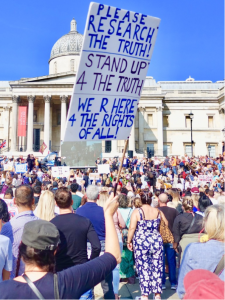
“Stand for the Truth……but whose truth.” by gerrypopplestone is licensed under CC BY-NC-ND 2.0| Protestors in front of the U.S. Capital
However, people vocalize on what they see and experience, so they are not truly affiliated with how vaccines are created, and what type of work and technology goes into vaccine production. Addressing these points directly as a fellow scientist, who has reviewed countless studies on the vaccine, it’s clear that more than enough research that was poured into this vaccine as this was not just a problem with America, this was a global pandemic. This means almost every scientist in the world was working to create the Covid-19 vaccine. This is a great example of when people set their differences aside and work together then we can accomplish most anything. With modern technology and scientific techniques we can re-run the human genome project within seconds rather than years. It’s easy to forget that scientists actually had a head start on the Covid-19 vaccine.
Back in 2003, we encountered the SARS virus which was the first Covid virus, which has been a steppingstone on understanding of the present Covid-19.5 As scientists were familiar with this virus and with the advancements of modern science it was possible to produce the vaccine in under a year. Furthermore, as of September of 2021, the FDA has 100% approved the Covid-19 vaccine. It was approved because it was shown in the thousands of test trial data samples gathered during the testing phase, which took almost half of the producing time. With this information many people have spoken out on their changed point of views on the Covid-19 vaccine, here are a few examples6:
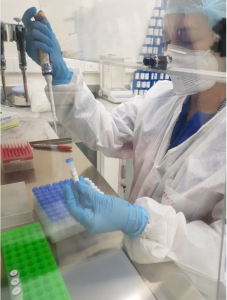
- Sally Morris, Leichhardt
“By dividing the nation into those worthy of what is seen as a less risky vaccine and those who aren’t has backfired. Giving everyone the opportunity to have the Pfizer vaccine would provide the shot in the arm the nation needs to acquire herd immunity.”
- Chris Hughes, Clovelly
“I would have thought something might have been made of the duty we owe our country to be vaccinated for the well being of all. I find this coaxing and wheedling of people to be vaccinated to be a very worrying symptom of a lack of a sense of duty at this critical time.”
- Wayne Duncombe, Glebe
“At school in the 1950s the medicos arrived, we lined up and received injections for polio and smallpox. Mum cut free the shoulder seams on my clothes to avoid hurting me and damaging the smallpox scab. The local boy in calipers reminded us of the vaccines’ advisability; a tiny scar on my left arm is today’s reminder. Polio? Smallpox? Gone. Have the COVID jab.”
As this information is accessible to the public then why are people still hesitant about getting vaccinated? Maybe it’s not so much of the facts at hand, maybe its how we as humans are wired.
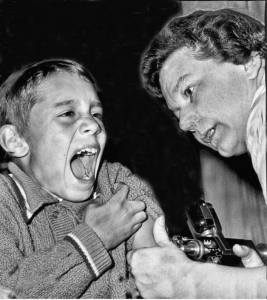
As humans we have what’s called a fear response which is basically what happens to most people when they come in contact with something they are afraid of. For example, most people are afraid of heights, bugs or insects, or losing loved ones so naturally people are afraid of vaccines because no one likes having a needle injected into their arm and receiving an unknown biological substance. Ever since the incident with the first polio vaccine we have had the fear response of receiving vaccines not only because it hurts from the pinch of the needle but also you don’t know how your body is going to react or what the vaccine will do to you.7 But to truly see how we view vaccines we need to dive deeper in the psychology of how we think and perceive information.
We form our opinions based upon our senses but mostly what we hear, see, and what we experience. We also react to facts. Why is it companies are hesitant to release actually data and information about the efforts and progress in the lab for vaccines, that can change individual perceptions? It’s quite simple. In order to continue to make a profit and stay competitive with other companies’ scientists would limit how they create vaccines as this vital information could then be copied and modified by other competitors which draws the companies out of business.8 There are policies and laws that help companies conceal their work, and with this in place people have difficulty trusting vaccines as the companies limit factual information which could change our perspective of vaccines. However, you don’t need to know the exact information in order to trust these companies, as again we go back to what we take in to form our opinion. As humans, we side on what we experience and what we see so what is not seen or known can’t be trusted.9
We are not all scientists, so we don’t know the aspects of immunity like actual scientists with that expertise. From experience being a scientist, there is a whole different world of available information but also it depends on the efforts of research. As humans we have short attention spans depending on what we are interested in and how much effort comes into play in order for us to find the truth. A lot of people would rather look on social media rather than read scientific, perhaps difficult to understand articles and postings because that is more appealing. It can also be how companies display their information, creating possible communication barriers, along with how humans are acquire information in this day and age. For example, the lockdown lasting a couple of months, never needed to happen if people actually abided the safety guidelines of wearing a mask and staying indoors. The problem with that was unjust or improper information of the effects of mask wearing and distancing which could also lead to the stubbornness of people, but could it be something else?10 As humans we like convenience or less effort for the same result which could influence how people viewed or searched for vaccine information. However, when backed into a corner whether it be physically or mentally, we most always follow legal requirements to do what is required which may entirely disregard their beliefs. In comparison to the polio vaccine, the risk of infection outweighed the possible symptoms of the vaccine, which led to the high vaccination rate of the second polio vaccine. So, in time the risk of infection could outweigh the possible symptoms of the Covid-19 vaccine which shouldn’t be the case if information was portrayed more vigorously appealing as the bias negative content on social media about vaccines.11

The hesitancy is present naturally, as a part of being human. Hesitancy comes about from not only history itself, but the fear of history repeating itself. This creates an upward slope of hesitancy with the production of a new vaccine. With the work of most of the scientists throughout the world, alongside with advanced modern technologies and the detailed approval process of the FDA we can now see how an effective and safe the Covid-19 vaccine really is. However, as humans the way we weigh our options is to view the negatives first and make our decisions based upon which side has has the greater argument. This often leads to choosing the natural and leaning toward the cons of receiving the vaccine. As humans we side with what we experience and what we see so what is not seen or known, therefore can’t be trusted which is which is linked to the lack of communication overall. The advancement in modern science is useless if we don’t have the necessary skills or tools to convey it’s use or effects. There will always be hesitancy until this change, until we are able to get the appropriate information to the public.
- Cheryl Lin, Pikuei Tu, and Leslie M. Beitsch, “Confidence and Receptivity for Covid-19 Vaccines: A Rapid Systematic Review,” Vaccines 9, no. 16 (December 1, 2021): 16. ↵
- Bollmann, Andreas, Esther Chernak, Thomas Fekete, Hilary Koprowski, Paul A. Offit, Carla M. Owens, Stanley A. Plotkin, et al., eds. 2021. “All Timelines Overview.” Timeline | History of Vaccines. The College of Physicians of Philadelphia. July 7, 2021. 1-1. ↵
- Engineering National Academies of Sciences et al., Assessing Global and Local Drivers of Vaccine Hesitancy, The Critical Public Health Value of Vaccines: Tackling Issues of Access and Hesitancy: Proceedings of a Workshop (National Academies Press (US), 2021). ↵
- “Not All Covid-19 Vaccines Are Seen as Equal by Some,” Sydney Morning Herald, The, May 21, 2021, 30. ↵
- Meghan Mcmurtry; Associate Professor in Psycho, “The Conversation,” Canadian Press, The, accessed September 2, 2021. ↵
- Sara Kuburic and Usa Today, “It’s Ok to Cut Friend Who Won’t Vaccinate Out Of …,” USA Today, accessed September 2, 2021. ↵
- Duff Michelle, Duff, “Why Do People Believe Covid-19 Vaccination Myths?,” Timaru Herald, The (Timaru Herald, The, August 6, 2021). ↵
- National Academies of Sciences, Engineering, and Medicine; Policy and Global Affairs; Government-University-Industry Research Roundtable, Resilience of the Research Enterprise During the Covid-19 Crisis: Proceedings of a Workshop Series-in Brief, The National Academies Collection: Reports Funded by National Institutes of Health (Washington (DC): National Academies Press (US), 2020). ↵
- Kin On Kwok et al., “Psychobehavioral Responses and Likelihood of Receiving Covid-19 Vaccines During the Pandemic, Hong Kong,” Emerging Infectious Diseases 27, no. 7 (July 2021): 1802–10. ↵
- Daniel Hannan, “Fearful Voters, Not Scientific Advice, Are What Is Keeping Us All in Lockdown,” Sunday Telegraph (London), May 3, 2020, 18–18. ↵
- World Health Organization, “Vaccine Acceptance and Uptake (Demand),” Guidance on Developing a National Deployment and Vaccination Plan for COVID-19 Vaccines (World Health Organization, 2020). ↵
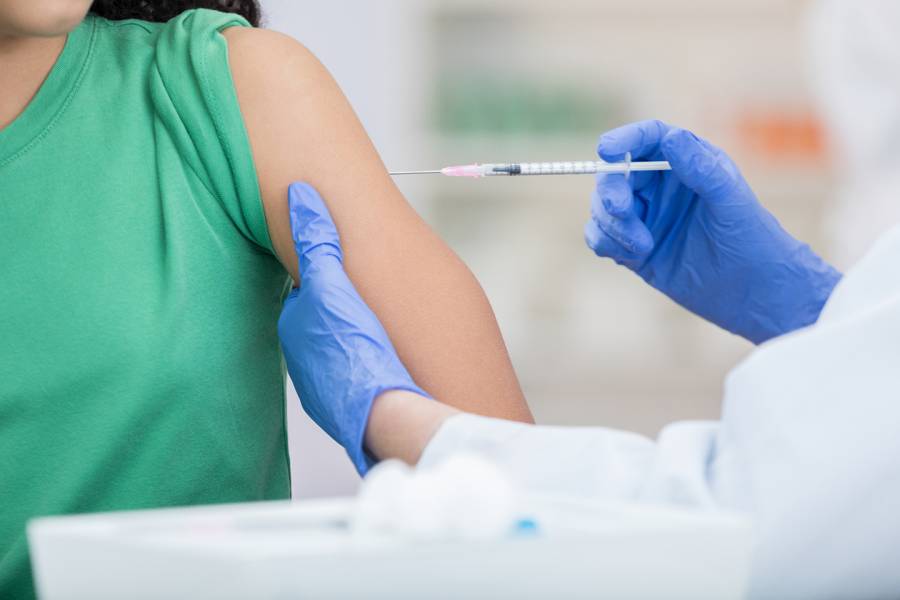

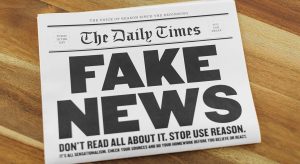
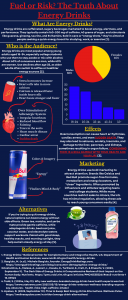
33 comments
Alonso Rodriguez
I am delighted that with this interesting article you are able to show with data reflected and contrasted by more than reliable sources, that the vaccine works safely. It is a good way to persuade and promote. At the same time, I think that if there are people who are unvaccinated, we should not discriminate against them, and this is something that is happening in many western countries.
Isaac Fellows
What a great article! I think it can’t be ignored that this is an issue which has been greatly politicized which is super unfortunate. Instead of correcting widespread misinformation, certain partisan groups have only encouraged their constituents to embrace vaccine hesitancy. There is a severe lack of a culture which encourages accountability for those who expose themselves to bad and harmful research. Instead of checking the beliefs of the hesitant, these groups have only sought to validate and coddle these fears. The hesitancy today is very unique and new, and has never been seen before at this scale, and I loved the psychological input you added.
Overall, I love the insight you provide on this topic. It’s very unfortunate we are even in this situation in the first place, I really wonder if we’ll ever reach a satisfying point to “end” this pandemic.
Daniel Diaz
This article hits close to home because I’ve had many friends that have said the same thing about not taking the vaccine. What ended up happening is that the delta variant spread around San Antonio and killed a few people that had been avoiding the vaccine which encouraged those who had not taken the vaccine to take it. It’s sad that it took for one of their other friend’s to pass away to convince them to help themselves out.
Vivian Urrutia
Hi Christian! This is a very important topic to learn! It is shocking to see how way back people refused to vaccinate themselves and now I understand why. Horrible cases of vaccines have happened throughout the years but people still don’t understand that vaccination nowadays not only saves you but others too. Medicine is innovating very fast too. This is a very modern topic and that is what I liked about it the most!
Aztlan Alvarado
Hey Christian, I think you did a great job on talking about one of the most important and relevant topics of this year, and your use of history and biases based on other vaccines is what ties the article together. It really is interesting to see how people are still so hesitant just because of vaccine horror stories from long ago, and although certain people do it due to religious beliefs, it’s still crazy to see just how many people are refusing to get it out of fear.
Sophia Kussel
incredibly topical, fears still linger around the covid vaccine, so people need to be informed. the use of the history of vaccines certainly helped in de-stigmatizing the covid vaccine.
Makenzie Bell
I appreciated how informative this article is, as well as writing about a topic that people sometimes cannot even talk about. This article is very interesting, I also liked how there were dates and quotes with the current situation at hand.
Claudia Sanchez
Hi Christina, this article was really informative and holistic about vaccines and their history. Learning that the polio vaccine has a similar reaction when it first came out and the issues with it make it understanding that people would be hesitant of a vaccine that came out in a shorter period of time. However, your article does a great job of highlighting how and why this vaccine is safer than the first polio vaccine. Love the use of photos in this article they add a real-life dimension to peoples concerns and hesitancy toward the vaccine.
Leopoldo Martinez-Milland
I enjoyed the way laid the article was laid, with the history of vaccinations to people being hesitant to get the vaccine. Christian was able to use the history of the vaccine to highlight the importance vaccines have had in the world. His reasoning on why people are so hesitant on getting the vaccine is not something I personally do not empathize with, but Christian was able to word it in a way to I was able to, at the very least, understand it. That was much appreciated on my end!
Lyzette Flores
Hi Christian! Even though this topic is very controversial, I am glad you wrote about it. I like how you first mentioned the coming of vaccinations in general, following up with the COVID-19 vaccination as we are still living in a COVID world. I am able to see the “antivaxxers” opinion on the COVID vaccine, but you do make an interesting point; every scientist in the world was working to develop this vaccine. As you mentioned, when we all work together we can get things done at a faster rate.